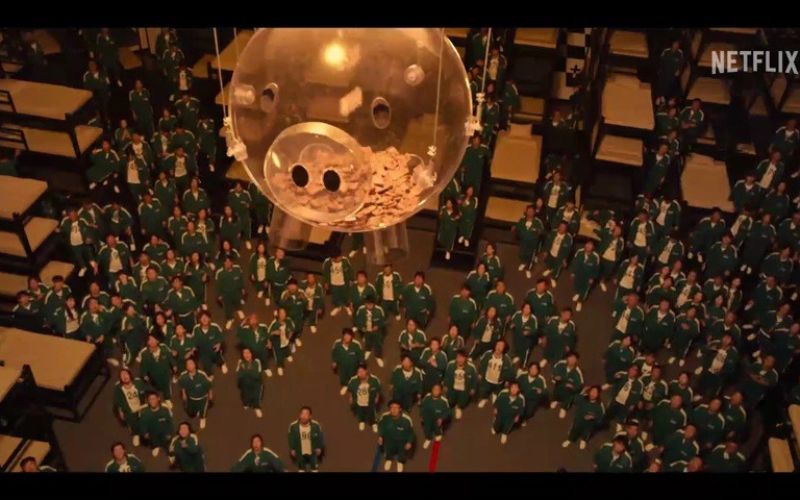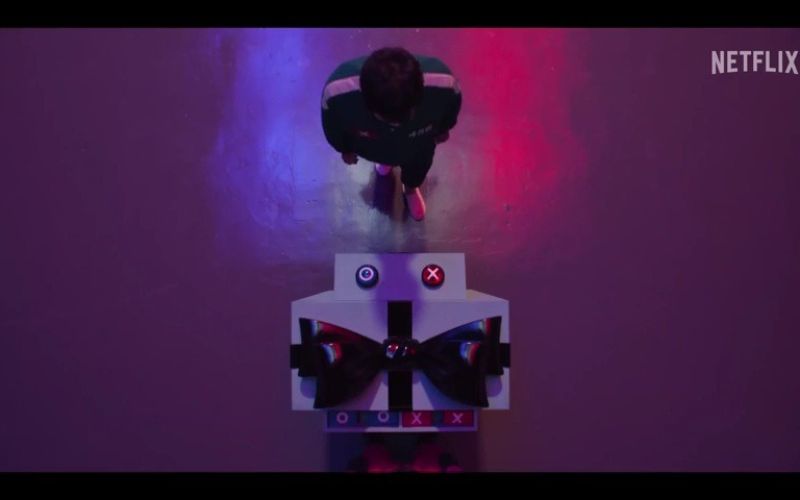The Korean Series “Squid Game”, written and directed by Hwang Dong-hyuk, became one of the most-watched and influential television series since the release of its first season on Netflix in 2021. It captivated audiences and critics worldwide, earning numerous awards, including the Screen Actors Guild Awards. The first season starred Lee Jung-jae, Park Hae-soo, O Yeong-su, Wi Ha-joon, Jung Ho-yeon, and Anupam Tripathi. Following the global success of the first season, the production of the second and third seasons was confirmed. The second season, written and directed by Hwang Dong-hyuk, was released on Netflix in December 2024. This season featured Lee Jung-jae, Lee Byung-hun, Wi Ha-joon, Park Gyu-young, Park Sung-hoon, Choi Seung-hyun (T.O.P), Kang Ha-neul, Yang Dong-geun, and Kang Ae-shim. The second season has won the Best Foreign Language Series award at the U.S. Critics Choice Awards in 2025.

Note: This article includes some spoilers.
“Squid Gam”e tells the story of a financially struggling man named Seong Gi-hun (played by Lee Jung-jae), who, along with 455 other desperate debtors, is invited to participate in a series of children's games in exchange for a massive cash prize. Though the games seem simple and nostalgic at first, the contestants soon face a horrifying truth: losing a game means death. Although the participants initially decide to leave after the first game upon realizing its deadly nature, their desperation in the outside world forces them to return. Throughout the competition, Gi-hun encounters his childhood friend, Cho Sang-woo (played by Park Hae-soo), and forms a bond with participant No. 001, an elderly man named Oh Il-nam (played by O Yeong-su), as well as a North Korean defector named Kang Sae-byeok (played by Jung Ho-yeon). As more games unfold and players are eliminated, greed, violence, and desperation take center stage. In the final game, Gi-hun faces off against Sang-woo and ultimately wins the multi-billion-won prize. However, deeply traumatized by the deaths of his friends, he refuses to accept or spend the money. Eventually, he discovers that player No. 001, Oh Il-nam, along with his wealthy associates, was the mastermind behind the games, orchestrating them purely for entertainment.
In the second season, Seong Gi-hun decides to fight against the organization behind the deadly games and destroy it. After two years of searching, he finally manages to re-enter the game. Meanwhile, police officer Hwang Jun-ho (played by Wi Ha-joon), who infiltrated the game in the first season in search of his missing brother and barely survived, aids Gi-hun in his mission while simultaneously trying to locate the game’s secret location.
Gi-hun meets new players, each drawn into the game by different hardships and circumstances. He attempts to use his experience to inform and persuade players to quit, hoping to save their lives. However, his efforts prove futile, as the challenges are now unpredictable. Thus, he forms an alliance with a group of players, including a close friend, to find a way out. In response to his disruptions, Hwang In-ho, the Front Man (played by Lee Byung-hun), enters the game as player No. 001 to get closer to Gi-hun. Gi-hun and his allies plan a rebellion, but despite their efforts, the uprising ends in failure and heavy losses.

“Squid Game” serves as a mirror reflecting the harsh realities of modern society and its economic and social inequalities. It delivers a raw and unfiltered critique of unrestrained capitalism, a system built on profit and personal gain, where human dignity and rights hold no value. The series portrays individuals trapped in a ruthless competition for survival, clinging to the only glimmer of hope they are offered, even if it means gambling their very lives.
The creative and symbolic choice of using childhood games—transformed into deadly competitions—as the narrative’s core effectively represents how capitalism manipulates people into its game, and they, consciously or unconsciously, turn their lives into a competition. The selection of these games exposes a bitter truth about how we perceive life under capitalism. For children, games are a way of life—they play with all their emotions, friendships, laughter, rivalries, and even losses, but ultimately, games are just a means of enjoyment. However, in the capitalist world, adults treat life as a game, where winning becomes the only goal, regardless of the cost to others.
Looking closely at the script and characters in the first season, the games play the lead role, driving the story forward by creating challenges for the participants. The characters undergo minimal development, with few experiencing deep transformations. Among them, Cho Sang-woo’s arc is perhaps the most dynamic, gradually revealing his darker sides—a progression that, given his background (such as using his mother’s shop as collateral for a loan without her knowledge), was not entirely unexpected. While this could be seen as a weakness in a typical screenplay, in “Squid Game”, it aligns perfectly with the show’s core message. Thanks to its well-structured screenplay, strong suspense, balanced pacing, and creative use of games to generate dramatic tension, the series manages to compensate for this potential flaw.
In the second season, the message remains as clear as in the first: the necessity of resisting capitalism and economic and social injustice. The game system has evolved, making survival even harder. In a new twist, the organizers introduce an option allowing players to withdraw after each game while keeping their earned winnings. This addition makes Gi-hun’s mission to convince players to quit even more challenging, as greed drives them to continue with the hope of earning more, deceiving themselves with the notion that "just one more time, and then I’ll stop." This system cleverly pushes them to act in favor of the organizers' objectives, though it also provides Gi-hun with an opportunity to further his attempts at awakening and persuading them.
In my opinion, the storyline of the second season is more engaging than the first, as it shifts focus from the games to the characters. This shift allows for deeper character development and richer interactions, adding more depth to their motivations. However, due to the inclusion of multiple subplots that are not fully explored, the second season’s screenplay lacks the narrative cohesion of the first.
The main focus in this season is on Seong Gi-hun and the Front Man, while other subplots—such as the story of the mother and son participants (played by Kang Ae-shim and Yang Dong-geun), the sharpshooter Kang No-eul (played by Park Gyu-young), Cho Hyun-ju (played by Park Sung-hoon), and the compelling new character "Thanos" (played by Choi Seung-hyun, (T.O.P))—could have had a greater emotional impact with more attention.
Despite these aspects, “Squid Game” remains one of the most captivating series produced, thanks to its significant themes, creative approach, compelling storyline, and strong performances from the cast.
The third season is expected to center around the confrontation between Seong Gi-hun and the Front Man, resolving the lingering questions from the second season. The interactions between Gi-hun, the Front Man, and the remaining characters—whether as players or as members of the game’s organizers—will likely play a crucial role in shaping the story. How this trilogy will conclude and what resolution it will reach remains one of the most intriguing aspects of the upcoming season. We can only wait and see.
How about this article?
- Like1
- Support0
- Amazing1
- Sad0
- Curious0
- Insightful0


